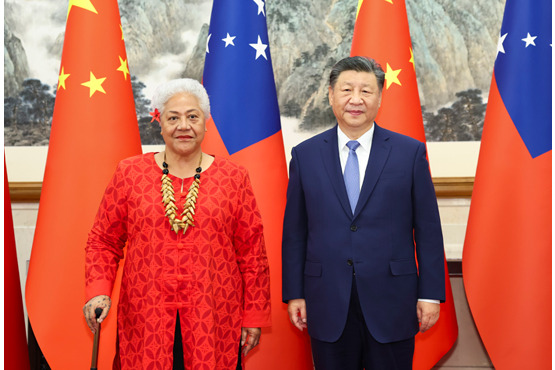China becomes country with most 'intl wetland cities'


WUHAN/GENEVA -- Seven Chinese cities are to receive certificates of "international wetland cities" from the Ramsar Convention, making China the country with most such cities, a Chinese official said Thursday.
The certificates will be issued at the 14th Meeting of the Conference of the Contracting Parties (COP14) to the Ramsar Convention on Wetlands from Nov. 5 to 13, with its main venue in central China's Wuhan city and a parallel session in Geneva, Switzerland, in both physical and online formats.
After the meeting, there will be 43 "international wetland cities" worldwide, of which 13 belong to China, said Hu Yuanhui, deputy director of the international cooperation department at China's National Forestry and Grassland Administration, on a joint press briefing of the meeting from Wuhan and Geneva.
"This is the greatest achievement of urban wetland ecological protection," Hu said.
"The situation (of wetland protection) in China is encouraging," Musonda Mumba, secretary-general of the Ramsar Convention, told Xinhua.
When other parties of the convention see this leading role of China, they will understand that wetland protection is conducive not only to the response against climate change, but also to biodiversity conservation, she said.
The seven newly certified Chinese cities are Hefei of Anhui Province, Jining of Shandong Province, Liangping of Chongqing Municipality, Nanchang of Jiangxi Province, Panjin of Liaoning Province, Wuhan of Hubei Province and Yancheng of Jiangsu Province, he said.
The other six Chinese cities that have shared the honor since 2018 are Harbin of Heilongjiang Province, Haikou of Hainan Province, Yinchuan of Ningxia Hui Autonomous Region, Changde of Hunan Province, Changshu of Jiangsu Province and Dongying of Shandong Province.
With 172 contracting parties today, the Ramsar Convention, named after the city of Ramsar in Iran, where the convention was signed in 1971, is an intergovernmental agreement dedicated to the conservation and rational use of wetland ecosystems.
Since its accession to the convention in 1992, China has established and improved the legal framework for wetland protection as well systems for protection management, project planning, and investigation and monitoring, and has actively fulfilled its obligations under the convention, and continued to expand international cooperation in this regard.
In the past decade, China has created and restored more than 800,000 hectares of wetlands, including 64 wetlands of international importance, 29 of national importance and 1,021 of provincial importance, according to the latest survey by the National Forestry and Grassland Administration.
In June, China's new law on wetland protection took effect. In October, the report of the 20th National Congress of the Communist Party of China noted the promotion of the natural regeneration of wetlands, delivering a clear signal that strengthening wetland protection is not only the true meaning of ecological civilization construction, but also an inevitable requirement of Chinese path to modernization.
Experts like Lei Guangchun, chair of the Science and Technical Review Panel of the Ramsar Convention and professor with Beijing Forestry University, said the fact that the COP14 has chosen Wuhan as the co-host city for the first time reflects the world community's affirmation of China's concept of ecological civilization.
With its in-depth participation in the Ramsar Convention affairs and the making of related international rules, China has contributed its own experience and solutions to the protection and restoration of global wetlands, Lei said.
- Party chief of Pudong New Area in Shanghai under probe
- China launches modified ZQ-2 carrier rocket
- Pandas inspire global dialogue on harmony between man, nature
- Nation ups support for migrants
- Girl garners attention for unique martial arts skill
- Xi says China always supports just cause of Palestinian people





































